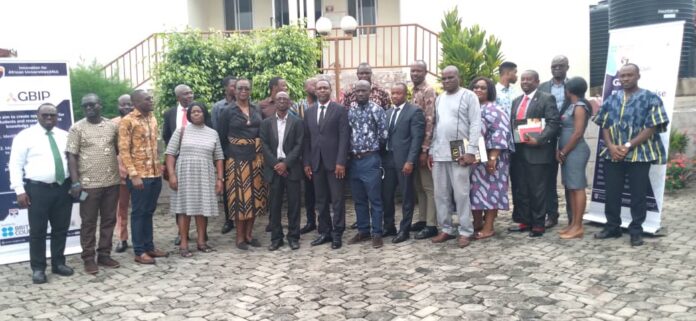Professor Kwabena Duedu, the Principal Investigator, Ghana Bioenterprise Innovation Partnership (GBIP) Project, University of Health and Allied Sciences, has reiterated the importance of greater investment in biotechnology and biosciences for accelerated development.
He said biotechnology was an essential area that could help in the country’s quest for rapid growth, hence the government should pay attention to it.
“Without bio-technology we will not achieve the economic growth that we expect as a country,” he said.
Prof Duedu, also the Head of the University’s COVID-19 Centre in Ho, told the Ghana News Agency in an interview ; “If we want to progress as a country we need to invest in biotech and biosciences.”
He said Ghana had not tapped into its biotech and biosciences yet, though a lot of opportunities existed to help in the country’s progressive march, adding that the time was ripe to engage in those areas.
GRA encourages businesses to issue VAT invoices after enterprises default
Court issues warrant for arrest of businessman over GHC86,000 fraud
He said the government was a key player in bioscience and must take a key interest in disbursing resources to support enterprises within that ecosystem.
Prof Deudu said the GBIP was to create a cohort of individuals within the bioscience sphere to take the bold step to bring their innovation out.
He said the project had been successful with all the major areas covered, adding that it had built the confidence of beneficiaries as some had started building their own prototypes.
Professor Desmond Omane, the Principal Investigator, GBIP, University of Cape Coast, in a speech read on his behalf, said the project had provided a unique learning opportunity for them.
They had the opportunity to understand and learn about the challenges, needs and prospects in the biomedical and pharmaceutical ecosystem during the 12-month period of the project, he said.
Professor Omane said the UCC, in collaboration with design thinking and innovation hub, as part of the project, hosted 23 potential entrepreneurs for hands-on training and the feedback was positive.
He said sustainability was central to all their activities and that measures were being advanced to ensure that was achieved.
Prof Wilber Sabiiti, the Principal Investigator, GBIP Project, University of St. Andrews, Scotland, speaking via zoom, underscored the need for Africa to produce its own solutions to deal with contemporary challenges.
He said during the COVID-19 pandemic Africa was struggling to have access to diagnostic tools “so we need to end that by making Africa self-sufficient and self-reliant by generating biomedical solutions.”
Prof Sabiiti called for strong collaboration between UCC, UHAS and St. Andrews University to enable them to share ideas and network for the growth and development of the project.
Dr Kwesi Prah Thomford, UCC Project Coordinator for GBIP, called for conscious efforts to address the gap between industry and academia.
He told the GNA that if the minor gaps, including knowledge and capacity building between academia, researchers and industry players were addressed it would provide a lot of opportunities for the industry to expand.

